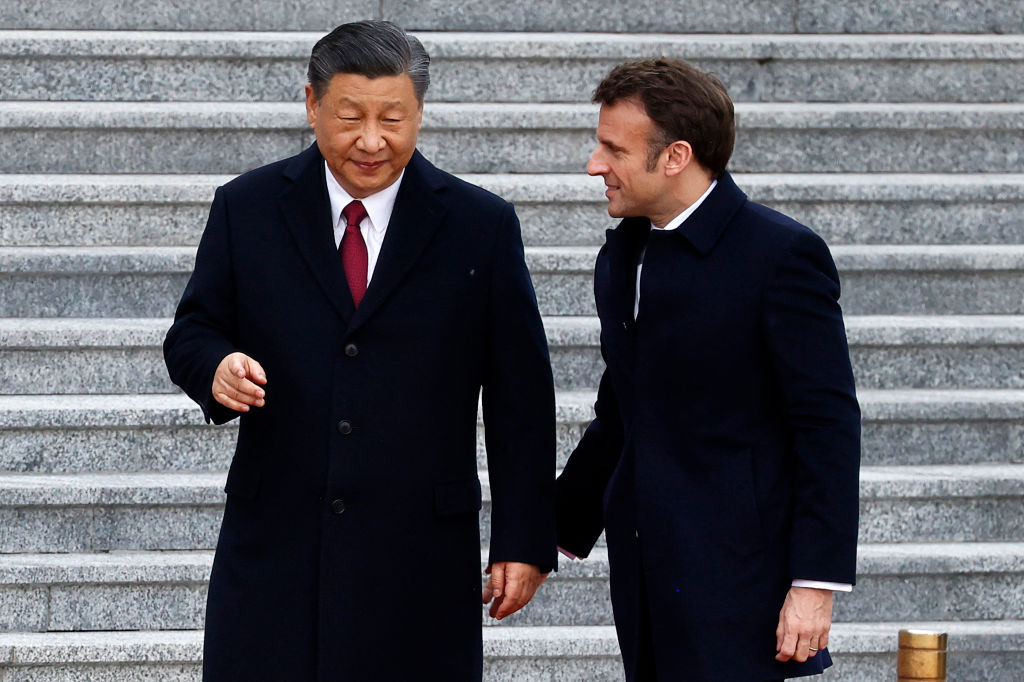
In recent months, the U.S. and the E.U. have sought to portray a mostly united front when it comes to China. Both Washington and Brussels have called out Beijing over its support for Russia amid its ongoing invasion of Ukraine, and both have firmly opposed any attempts to alter the status quo around Taiwan, the self-governed democracy to which Beijing lays claim.
But as much as American and European leaders may appear to be in lockstep on China, the same cannot be said for their respective populations. According to new findings published by the European Council on Foreign Relations (ECFR) on Wednesday, a majority of Europeans see China as a “necessary partner” rather than as a rival or adversary, unlike most Americans. What’s more, in the event of a potential conflict between the U.S. and China over Taiwan, most Europeans would prefer to stay out of it.
The findings, which stem from a poll of more than 16,000 people across 11 E.U. member states, offer a stark contrast to the conventional view that there is a certain symmetry between what is happening in Ukraine and what could yet happen in Taiwan. Both have had their sovereignty denied by more powerful, authoritarian neighbors in Russia and China, respectively. But this isn’t necessarily all that surprising. Whereas U.S. President Joe Biden has put forward a hawkish stance against China—dubbing Beijing the most serious competitor to America and pledging to defend Taiwan against Chinese incursion —European leaders have held more mixed views, ranging from E.U. Commission President Ursula von der Leyen’s calls to “de-risk” the bloc’s relationship with Beijing to French President Emmanuel Macron’s more conciliatory approach of treating China as a strategic partner.
This discrepancy bears out in public opinion. Whereas more Americans are likely to regard China as a competitor (52%) or enemy (38%), according to a recent study by the Pew Research Center, European attitudes toward China are more mixed. On average, 43% of Europeans view China as “a necessary partner” as opposed to 24% who see the country as a rival or 11% who see it as an adversary. This is despite the fact that a majority of Europeans recognize China as being a close partner to Russia, which a majority of Europeans regard as a rival or adversary to Europe.
It’s perhaps for this reason that, when asked how their country should respond to a potential conflict between the U.S. and China over Taiwan, a majority of Europeans (62%) said that they should remain neutral. Pawel Zerka, a Paris-based senior policy fellow at ECFR and a co-author of the report, tells TIME that this position isn’t a reflection of Europeans’ feelings toward the U.S. (which most Europeans recognize as a close ally and partner) or Taiwan’s territorial integrity.
“The Taiwan or China question is still very abstract to European citizens,” Zerka says. “For Europeans, these are incomparable things: the war in Ukraine, which is actually happening next to our borders and that we are closely following, versus a very distant Taiwan, where there is not yet any war and which is not very much discussed.”
Read More: Why China Won’t Invade Taiwan Anytime Soon
This position has been most prominently articulated by Macron, who following a visit to China in April warned that Europeans should avoid becoming “America’s followers” when it comes to Taiwan, noting that Europe should avoid the “trap” of getting involved in crises “that are not ours.” It’s a position that earned Macron flak among his allies, including fellow E.U. member states such as Lithuania, which has deep ties with Taiwan and has even opened a de facto embassy for the island nation.
Europe’s position vis à vis China could yet change—particularly if Beijing wades into the war in Ukraine. While China remains an important trading partner for Russia, it has yet to support Russia militarily. If Beijing were to supply Moscow with weapons and ammunition, as the U.S. claims it is considering, as much as 41% of Europeans would support imposing sanctions, even if it resulted in damage to Western economies.
Just as Europeans’ views of Russia hardened following its invasion of Ukraine, Zerka says the same could yet happen if Beijing were to do the same with Taiwan. But so long as it remains a distant hypothetical, the scope of that movement will be difficult to gauge. “Before the war in Ukraine, most Europeans were seeing Russia as partners, not as rivals or adversaries,” says Zerka. “But the war radically changed their perception. … It’s only when such events happen when we would really be able to see whether European perceptions and attitudes have changed or not.”
More Must-Reads from TIME
- Cybersecurity Experts Are Sounding the Alarm on DOGE
- Meet the 2025 Women of the Year
- The Harsh Truth About Disability Inclusion
- Why Do More Young Adults Have Cancer?
- Colman Domingo Leads With Radical Love
- How to Get Better at Doing Things Alone
- Michelle Zauner Stares Down the Darkness
Write to Yasmeen Serhan at yasmeen.serhan@time.com